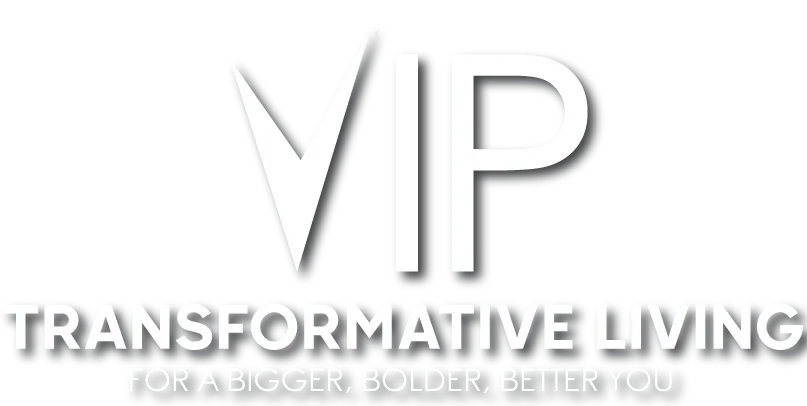Welcome To VIP Transformative Living
Our mission is to support men of color in navigating life's transitions with confidence and success. Through coaching and guidance, we help them become resourceful by aligning their values, identity, and purpose, enabling transformative breakthroughs in their careers, relationships, and health.
Welcome To VIP Transformative Living
Where our mission is to empower aspiring men of color to successfully navigate life transitions. We coach and guide men of color to be resourceful by aligning their values, identity, and purpose to achieve transformative breakthroughs in their careers, relationships, and health.
About Us
Helping Businesses and Individuals Achieve Their Goals
We exist to empower aspiring men of color to successfully navigate life transitions. We coach and guide men of color to be resourceful by aligning their values, identity, and purpose to achieve transformative breakthroughs in their careers, relationships, and health.


About Us
Helping Businesses and Individuals Achieve Their Goals
We exist to empower aspiring men of color to successfully navigate life transitions. We coach and guide men of color to be resourceful by aligning their values, identity, and purpose to achieve transformative breakthroughs in their careers, relationships, and health.
★★★★★
Testimonials
Here is what midlife men are saying:
Benard Campbell
Realtor & Investor
Adom Cooper
Lawyer/National Security Expert
Jomar Benoit
Global Logistics Real Estate Expert
This Will Change Your Life
Introducing Our Video Course...

Breaking Free: Discover Your Purpose, Power And Prosperity In Midlife
Don't miss out on unlocking your full potential.
Grab our exclusive video course now and supercharge your success.
Why Do We Need A Coach?
★★★★★
Testimonials
Benard Campbell
Realtor & Investor
Adom Cooper
Lawyer/National Security Expert
Jomar Benoit
Global Logistics Real Estate Expert
Free Resource
Introducing Our e-Book...

Breaking Free: Discovering Your Purpose, Power And Prosperity In Midlife
If you’re ready to get started and you know you’re in the right place to break free of your current midlife crisis and claim your birthright, claim a life of purpose, power, and prosperity.
Our Gift To You
Introducing Our Video Course...
Breaking Free: Discovering Your Purpose, Power And Prosperity In Midlife
Don't miss out on unlocking your full potential.
Grab our exclusive video course now and supercharge your success.
Free Resource
Introducing Our Free Book...
Breaking Free: Discovering Your Purpose, Power And Prosperity In Midlife
If you’re ready to get started and you know you’re in the right place to break free of your current midlife crisis and claim your birthright, claim a life of purpose, power, and prosperity.
Why Do We Need A Coach?
Coaches play a crucial role in personal and professional development for a variety of reasons. Here are some key reasons why people seek the guidance of a coach.
Get In Touch :)
We value your feedback, questions, and suggestions. Whether you have a query, want to give us feedback, or simply want to get in touch, we're here to help. Please feel free to reach out to us through the option provided below.
Get In Touch :)
We value your feedback, questions, and suggestions. Whether you have a query, want to give us feedback, or simply want to get in touch, we're here to help. Please feel free to reach out to us through the option provided here ➡️
Our Blogs & Newsletter

How to Have Balance in Your Life
How to Have Balance in Your Life
Introduction
We live in an era where success is often defined by over-achievement in our professional and personal lives. When we focus too much on our business or professional goals, our relationships can suffer. When we ignore our professional development needs, our job security or businesses can be put at risk.
The relentless and competitive corporate work ethic, the “need-it-now” mentality encouraged by our dependency on fast technology, and the desire to achieve more and enjoy more every day are throwing many people into a state of unbalance.
So often are we driven by the desire for more money that we lose sight of what’s important: our relationships, health, and enjoyment of life.
How that state of imbalance feels to an individual can vary. Over-work and workplace politics can lead many people to a state of burn-out, leaving them feeling tired, depressed and lethargic. Personal relationships, our health, and careers can suffer as a result.

Even people working from home question how to balance it all. Although work may be easier for them because they no longer have a commute, the temptation to never turn the computer off can be daunting.
Before you know it, these telecommuters are working during every waking moment of the day, often ignoring household responsibilities or their children, just to earn that extra dollar.
Another type of imbalance can happen when our personal lives are strained. Parental responsibilities, spousal difficulties, and even the support needs of our aging parents can create a disruptive level of stress. Strains in our personal life can affect our productivity at work and threaten our health and emotional wellbeing.
Regaining a life balance is a step-by-step process that requires us to look at various aspects of our lives in honest and frank ways.
It may take time or require some work. You might need to make some schedule changes or even sacrifices, but in the end, your peace of mind and strengthened relationships will be worth the effort.
These exercises are not meant to judge or criticize your past life choices. Let them simply help you reflect on what’s important in your life right now and how you can reclaim your happiness.
Relationships
Relationships are at the core of modern-day living. Relationships help us in business, the marketplace, our families, and our friendships. If we want to achieve a sense of balance in our lives, we should pay close attention to our relationships.
Different relationships in our lives require our attention and care in different ways. Parental responsibilities require a different kind of commitment than that required for a spouse or an aging parent.
When there are issues in any of these personal relationships that require special attention, this can take from us the energy and commitment we might otherwise have for other relationships in our lives, like those we have in our businesses and places of employment.
The goal, of course, is to find a balance.
To help achieve that balance, the following suggestions may be helpful:
Be careful when adding responsibilities. Acknowledge when certain relationships in your life require special attention to deal with an issue or concern. Trying to treat everything as normal, when it isn’t, may get you into trouble.
For example, if your teenager requires your special attention to deal with an urgent issue, it may be a bad time to take on added responsibilities at work. If you can postpone added duties or projects to your job duties, try to do so.
Attempting to be all things to all people can lead to imbalance and exhaustion.
Communicate. Maintain clear lines of communication between you and the people in your important relationships.
Let those in your personal relationships (spouse, partner, or children) know when you have added responsibilities or challenges at work so that they’ll better understand the reasons behind your inaccessibility at certain times.
Miscommunication and misperceptions about behaviors can cause unnecessary stress.
A point to remember. Understand that certain relationships go dormant or evaporate over time due to life circumstances. Divorced friends often fall out of touch with married friends. Those with children often find less in common with their single friends.
Trying to salvage these relationships can be exhausting, especially if both people involved don’t have the same interest in saving it. It takes two to be in a solid relationship, not one.
Learn how to compromise. This can be difficult, especially if you feel like you're "giving in,” but this skill will be useful in keeping the stress levels down in your life.
If your boss wants you to work the weekend, ask instead if you can do the work from home in the evenings. In many work situations it doesn’t matter how or where the work is done so long as it meets the deadline.
Compromising with your spouse and children will show them that you hear what they’re saying but they can’t always get their own way.

Body and Health
One of the ways we might discover that our lifestyles need balance is through our bodies.
Many believe our bodies have ways of alerting us to the need for lifestyle changes. Headaches, fatigue, sleeplessness, and irritability could all be signs that changes need to be made in our personal or professional lives.
These physical signs often start off small, but if we don’t make changes, the problems could continue to grow, thus causing physical harm or damage.
Experts agree that serious illnesses can result from the poor combination of mental stress, poor diet, and a heavy workload. The good news is that all these factors are within your control to change!
YOU oversee what you put into your body for food. YOU are in charge of how you allow people to treat you at work.
Extensive hours at work, too little exercise, or extensive strain in our personal relationships can all serve to make us feel unwell.
Here are some tips for staying healthy and stress free:
Get moving. Even 10-minute intervals of exercise can relieve stress and help clear our minds. Choose two or three times a day when you can spare 10 minutes to walk, get some fresh air, or do some yoga stretches.
Eliminate caffeine. We all know caffeine is the jolt in our coffee that wakes us up in the morning, but it can also cause headaches and insomnia. Avoid having caffeine late in the day and try to limit your morning coffee intake to avoid the jitters.
Get enough sleep. Set a bedtime for yourself and stick to it. Turn off the TV, do some deep muscle stretches, and relish the quiet of your bedroom.
It may take some time getting used to going to bed earlier –especially if you’re a night owl – but your body will thank you for it in the morning.
Eat dinner as a family. This is a perfect time to shut off the TV, turn on the answering machine, and just focus on talking with your family members about their day.
You can reconnect with your kids, they can discover more about what you do for a living, and you’ll also get a heads up if your spouse needs more of your time later in the evening to talk.
The best step you can take to protect your health is to pay attention to your body’s signals. If you ignore them, it may be at your own peril. When you achieve a healthy balance between work and your personal life, your sense of well-being also improves.
Career
Many people define themselves in terms of their career.
“What do you do?” is a common cocktail party opening line, and most often the question is referring to one’s career or profession, not hobbies.
The quest to present a successful life to the outside world has led many people to put most of their mental and emotional energy into their career or professional life.
Trying to live “like the Joneses” has put millions of people into credit card debt, which causes stress and turns family life into turmoil as the spouses try to dig themselves out. This is an example of tremendous imbalance in life, as there will be very little left to dedicate to one’s personal relationships.
The state of career burn-out is another negative outcome from putting too much of yourself into your job. In that never-ending quest for more money, workers give their heart and souls to their jobs, only to be passed over for promotion, or worse, laid off.

Yes, we all want and need to provide for our families, but at what cost? Be sure to focus plenty of energy on your personal relationships because those will likely last longer than your current work relationship.
To perform your best in your career, you need to feel healthy in body and mind.
Maintaining a balance in your professional and personal life will contribute to that outcome.
Follow these tips to help maintain balance between your work and personal lives:
Limit work hours. Leave work at a designated hour and try to include recreational or exercise activities in your routine.
If you’re a workaholic, it won’t be enough to say you’ll try to work less; you’ll need to make a concerted effort to balance your hours more reasonably.
Turn off the cell phone after hours. Unless you’re a doctor on call, let your voice mail pick up any messages and contact them in the morning.
Create this boundary early in your work career; your family will thank you for it.
Pick one day a week as your day of rest. Traditionally, this is Sunday, but it can be any day of the week if you work an untraditional schedule. Take this day to focus on you and your family. Do something fun and enjoy yourself!
This means the computer, cell phones, and even the TV stay turned off (if you dare)!
A more balanced workday and healthier activities will increase your enjoyment and satisfaction in both your career and personal lives. Very often you’ll find a renewed energy and love of life that you had forgotten existed! And you’ll have some great stories to share with your co-workers.
Finances
Finances are the source of some of the greatest stress in life today. In this credit-obsessed society, many people spend what they don’t have in order to keep up with the high level of consumerism that has shaped our culture in recent decades.
Balancing your personal financial budget is extremely important. Making a conscious decision to live within your means is the first step. The next important step is to find other ways to seek satisfaction in your daily life.
Unnecessary purchases and eating out with excessive frequency may be signs that something else is missing in your life. What voids are you trying to fill with all these purchases?
Think about the money you’ll save by choosing more frugal and personally satisfying activities. Set a goal for a monetary amount you can save by a certain date. Once you achieve that goal, repeat it or, if possible, increase the goal over the next few months.
Here are some other tips for keeping your finances in order:
Balance your checkbook each month. While this may seem trite and old fashioned in today’s internet world, you still need to know and understand just how much money you spent compared to how much you earned.
Looking at each expenditure, as opposed to just glancing at the current balance, will help you understand your spending habits.
Pay cash for everything. Ask yourself prior to each purchase if it’s something you NEED or WANT and if you have the cash for it. If you pay by debit card, make sure you’re aware of how much is in your account, as well as any upcoming bills.
Eat meals at home. Depending on where you live, a family of four can easily spend $150+ for dinner out at a casual restaurant. And that doesn’t include appetizers, beverages, or dessert.
Save that $150+ by preparing your favorite restaurant dishes at home.
Create a budget. This goes hand in hand with balancing your checkbook. Make a list of every household expense and trim expenses where you can. Lowering your cable package or canceling an extra phone can be done with a simple phone call.
Realizing that you can save money and still achieve satisfaction in the way you live will help you to better manage your finances and achieve a happier balance in your life.
Personal and Spiritual Growth
Personal and spiritual growth means different things for different people. Most will still agree that people are spiritual beings and that the spiritual component of who we are needs to be satisfied and nourished like other aspects of our being.
We experience personal growth when we learn what our potential is for success and happiness, and at the same time, what our limits are in reaching for that potential.
Personal growth occurs with time, effort, and a willingness to change. Having supportive people in our relationships can also help us to grow personally.
While we may not be as aware of the times when we need to experience personal growth, when we feel spiritually drained, we know it. It’s hard to get through serious challenges in life –whether they’re professional challenges or personal tribulations.
When we understand our spiritual connection to those around us and to something higher, we become inspired and encouraged. That new perspective can give us clearer insight into the issues before us and the steps we can take to adopt a more balanced approach to dealing with them.
A centered, spiritual focus can also inspire us to do more for those around us and help us focus less on the shortcomings and frustrations in our own lives. In becoming more caring people, we become more than just a workaholic or someone’s sister—we become part of a spiritual community that gives us strength.

Taking the time to reflect on our lives is an important part of our development and growth. This is a necessary ingredient in our efforts to achieve balance in our lives.
Conclusion
Work, career, and personal lives in the 21st century are so complicated and fast paced that it’s no wonder so many Brothas are struggling to achieve balance in their lives.
The good news is balance is achievable if you:
Recognize when there’s a problem
Communicate your issues and challenges to the people who comprise your most important relationships – both professionally and personally Pay attention to the health signals your body gives you, especially when you aren’t following physically or mentally healthy routines
Make a concerted effort to curb workaholic ways Spend within your means and take control of your finances
Take time to nourish and support your personal and spiritual growth needs
Following these strategies can bring peace and harmony to your life and enable you to enjoy it to the fullest.

Subscribe To Our Weekly Newsletter
This covers exclusive content for black men over 40 and the (women who love them) touching on health, career, finance, and relationships.



